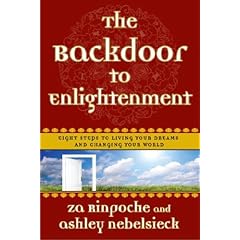It’s a term, and nothing more. Here is what I think is most important: IT IS NOTHING NEW.
“edupunk is student-centered, resourceful, teacher- or community-created rather than corporate-sourced, and underwritten by a progressive political stance. . . . Edupunk, it seems, takes old-school Progressive educational tactics–hands-on learning that starts with the learner’s interests–and makes them relevant to today’s digital age, sometimes by forgoing digital technologies entirely.”
-definition provided by Stephen Downes
 I have seen it discussed in flurries on Twitter. I have read Jim Groom’s original post, where he coined the term. I have followed some of my favorite bloggers’ posts about the term, and found some new ones, too. I saw a student‘s take on it (insightful, as usual) and I have seen the much discussed stub on Wikipedia. I’ve done my research. I was even invited to share all the best “edupunk” ideas I use regularly (though I had to respectfully decline). I’ve seen all the hype and I just can’t shake the feeling that we have seen this all before.
I have seen it discussed in flurries on Twitter. I have read Jim Groom’s original post, where he coined the term. I have followed some of my favorite bloggers’ posts about the term, and found some new ones, too. I saw a student‘s take on it (insightful, as usual) and I have seen the much discussed stub on Wikipedia. I’ve done my research. I was even invited to share all the best “edupunk” ideas I use regularly (though I had to respectfully decline). I’ve seen all the hype and I just can’t shake the feeling that we have seen this all before.
With all respect to Andy Rush — I know, I know, maybe I shouldn’t take it all so seriously. After all, Jim Groom just seems like a crazy dude with a love for technology and learning. But here’s the thing: lots of other educators (and students) out there ARE taking it seriously. And it’s turning into a bunch of hoopla.
Good educators have been creating “student-centered, resourceful, teacher- or community-created rather than corporate-sourced” learning experiences for centuries. It is JUST GOOD PRACTICE. Let’s assume we are all well-read, well-versed educators who have studied the theory as well as had the experience. We have all read Piaget, Skinner, Postman, and Montessori. We have been teaching our students (maybe even through trial and error? God forbid!) and we have learned what works best. We know that “hands-on learning that starts with the learner’s interests–and makes them relevant” is the best — whether that includes digital technologies or not. So why do we need to label it something other than what it is already? It is already GOOD PRACTICE. To paraphrase Tina Turner (who definitely was not punk): What’s punk got to do with it?
I agree with Warlick when he says:
The term is important . . . because it associates with people’s images of themselves and what they do. . .
Edupunk as Portal comments, in reply to Stephen Downes
And although Warlick thinks it’s a good term because it gets people’s attention, we have to recognize that perhaps “punk” is not how all educators see themselves and what they do. This is, I think, what Mrs. Durff was getting at in her comment about it being a “distasteful” term. If I do all the things that are considered “edupunk,” why do I have to be called this? Can’t I just be called a creative teacher? I don’t feel “punk” and I don’t really want to be “punk,” for that matter. I just want to be a good (if not great) educator who does what’s best for her students and their learning.
Like Gardner Campbell, I am skeptical of this term. I agree with him when he says,
There was DIY long before punk, and long after.
Yes, it has sparked some interesting discussion, but will it change anything? David Gran thinks all this debate is furthering our understanding of eduators’ relationships to the global community via technology. I can’t agree with that. I think my understanding of relationships to and within the global community will continue to be fostered and developed without this misnomer. I fear this new term will be the measuring stick for our future educational endeavors. Will we be asking ourselves at every new lesson, assessment task, or faculty meeting, “Are we edupunk enough?” Do we really want this?
I can understand and take into consideration the true spirit that the term embodies, and I can see the creative vibes that it originated out of. That’s all fine and good — and perhaps Jim Groom never intended it to go this far. But I’ve already decided that I don’t really want the term “edupunk” to be how I am described as an educator, for reasons I’ve outlined above. Nevertheless, I do have a few genuine questions:
 Insightful Question #1:
Insightful Question #1:
I have to wonder if the reason why this term gained such ground in the post-secondary edublogosphere is because post-secondary institutions traditionally have not been hotbeds of ultra-progressive, uber-hip, pedagogically sound teaching and learning. (FLASHBACK: I can count on one hand the number of professors I had who actually were good teachers. I distinctly recall one professor who gave entire lectures standing in one spot, reading from the textbook, pausing between pages to look at the ceiling — we all wondered if he was signalling to the mothership.)
This situation, that is the lack of effective teaching in universities, is of course changing. Many university professors are now actually (gasp!) certified teachers with B.Ed.s and the like. But I wonder how many university professors (outside of the Faculty of Education) have spent time in a kindergarten classroom? That’s where the REAL D.I.Y., hands-on, teaching and learning happens, ladies and gentlemen — we all have MUCH to learn from these very talented KG teachers, and I daresay more high school and university educators would benefit by spending some time in their classrooms.
Insightful Question #2:
If “edupunk” is anti-establishment and anti-corporation, does that mean a true Edupunk does not use any tools provided by large-scale companies? So does that mean no Google? no Flickr? no QuickTime? Alas – these are all tools provided by corporations. Does my using them mean I am succumbing to corporate interests? What about my association with and work for the IBO? They are a non-profit organization but still a recognized “brand.” Yet they are an organization that I believe represents learning needs and goals of students around the world, in the most open-minded way possible.
Image credits:
- Too much information by Violator3 licensed under CC 2.0.
- question con 3 by svilen001 under image license agreement.
[This post has been cross-posted at Pockets Of Change.]

 Questions I have:
Questions I have: The thing is, I think about this stuff all the time. It is only recently, after reading hoards of
The thing is, I think about this stuff all the time. It is only recently, after reading hoards of 